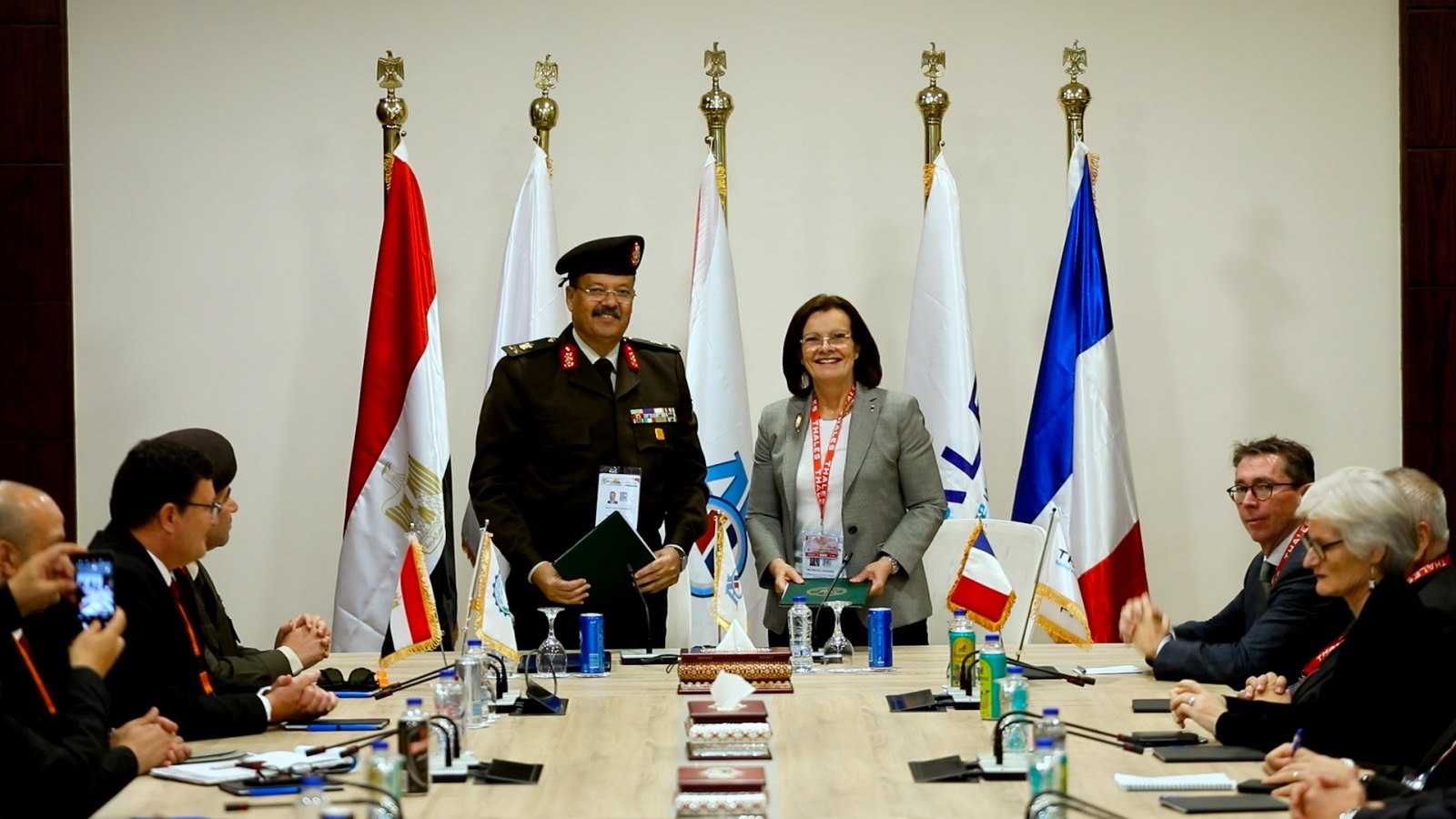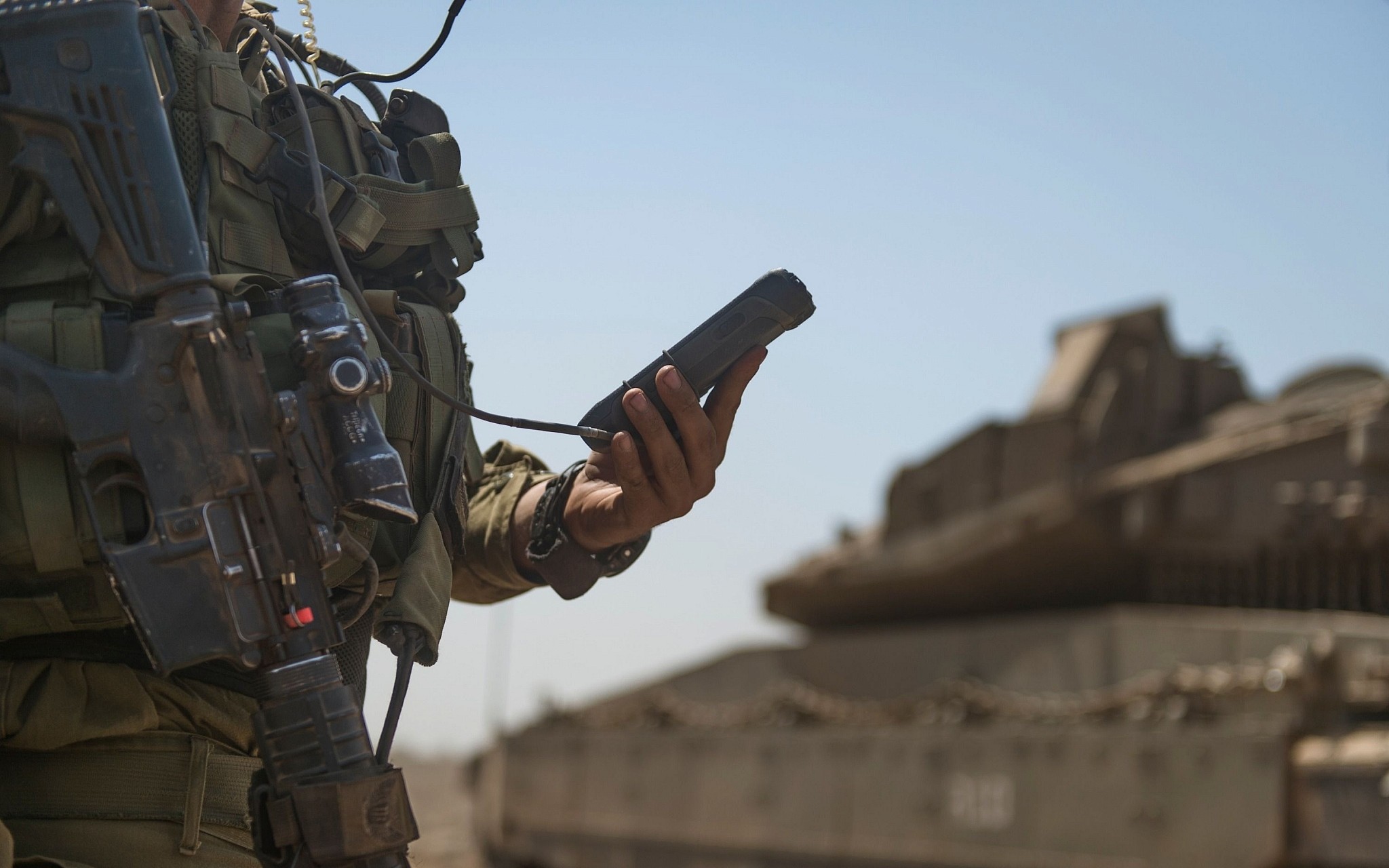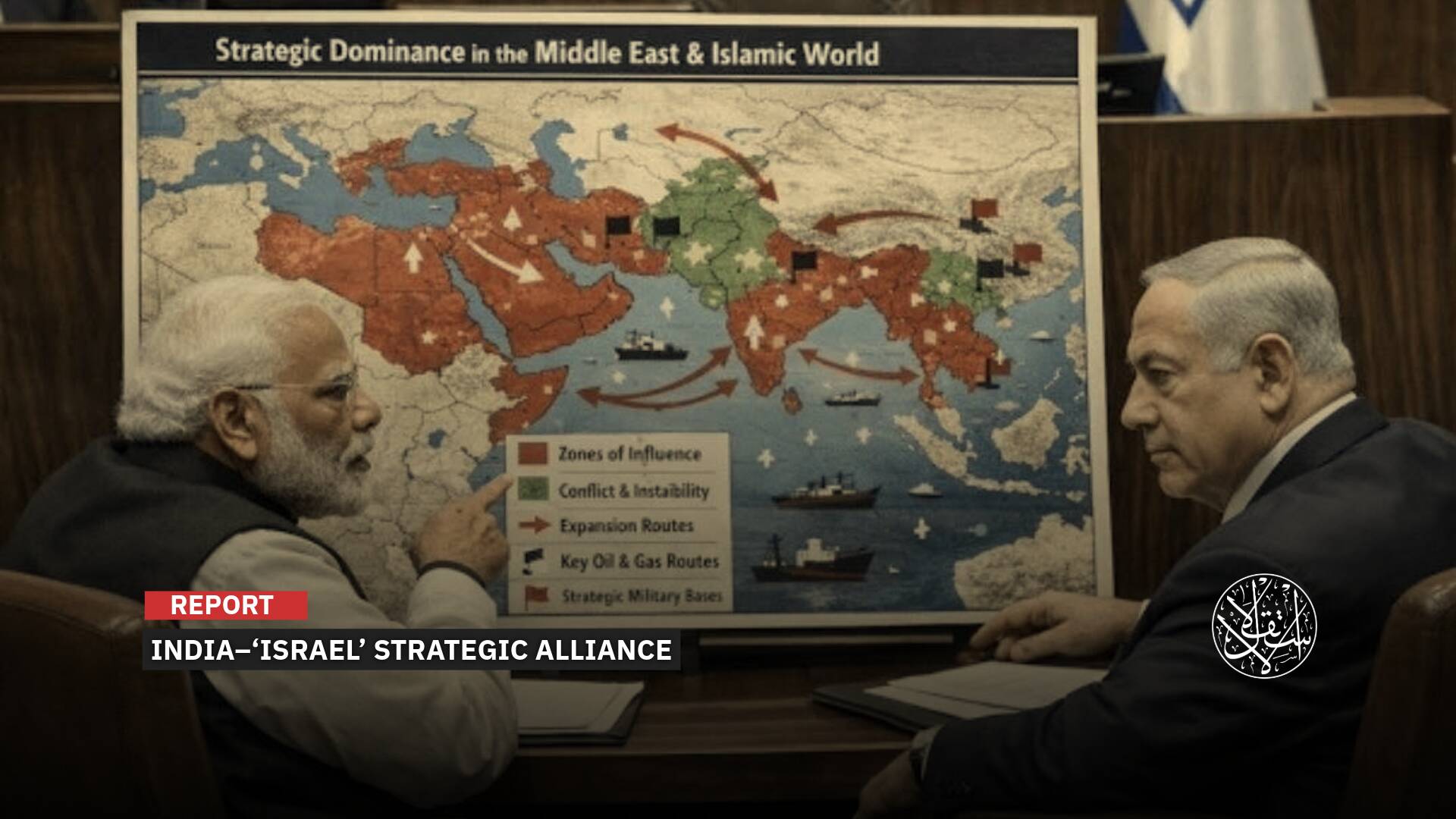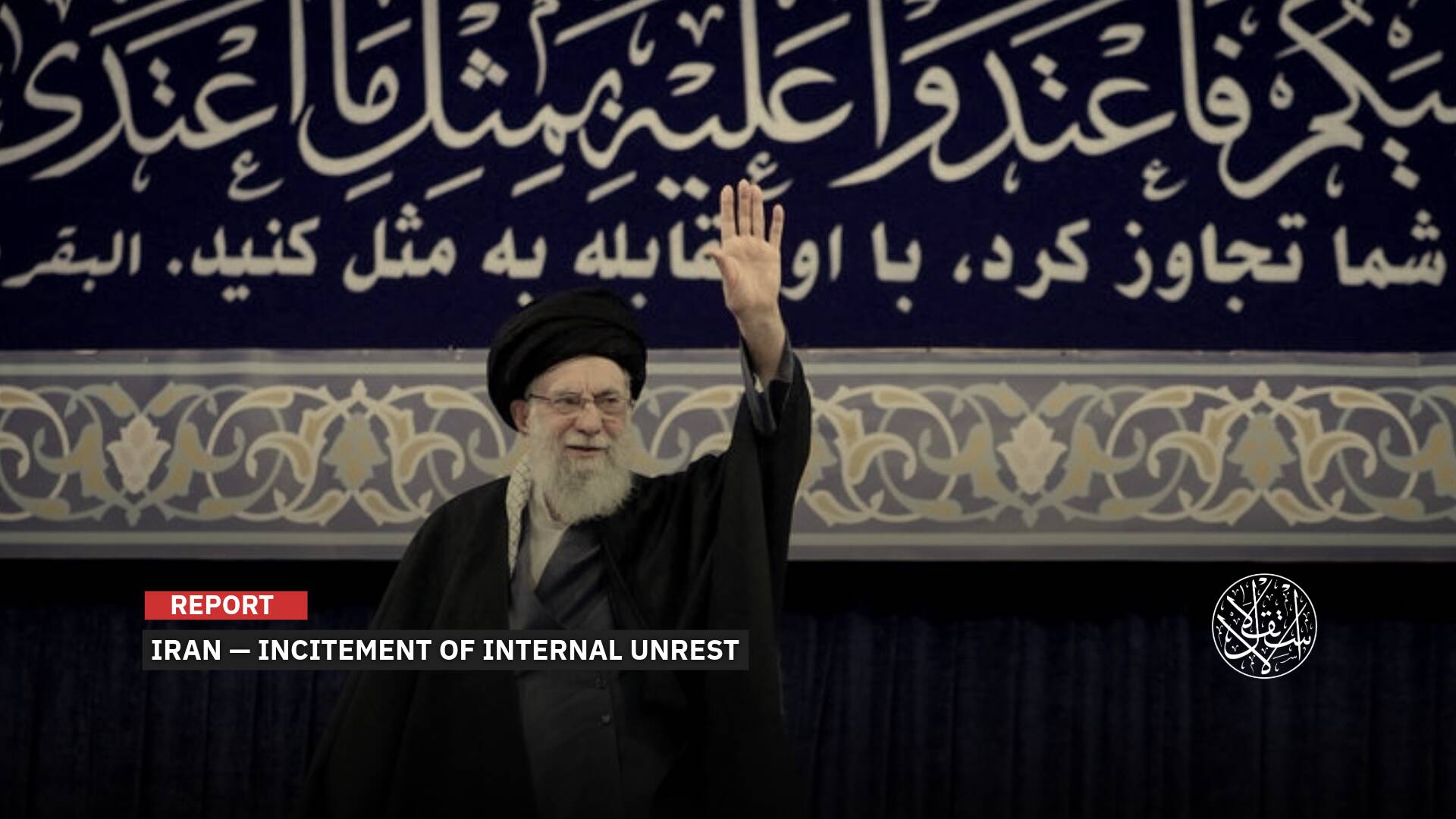Lebanon Blast Catastrophe: Is Egyptian Army at Similar Risk with Motorola and Thales?

Thales, trusted and relied upon by the Egyptian government, maintains advanced ties with “Israel.”
On September 17, 2024, Lebanon was enjoying a tranquil afternoon until 3:45 p.m. local time, when a sudden wave of explosions shattered the calm in the southern suburbs of Beirut.
Just as the first wave subsided, a second round of similar explosions hit the country the following day at around 5 p.m. The Lebanese Ministry of Health announced a total of 37 dead and 2,931 injured.
It was soon revealed that the source of the devastating blasts was the explosion of thousands of pager communication devices and radios owned by members of Hezbollah.
In response, Hezbollah declared that “Israel bears full responsibility for the attack, having targeted its communication systems.”
The Israeli strike on Lebanese territory through suspected hacking of communication networks raised concerns over the enemy’s ability to manipulate or control devices through affiliated or cooperating companies.
These companies could potentially be used to spy on individuals and military institutions or even serve as weapons via cyberattacks in times of war and conflict.
This incident shifted attention to the Egyptian army, the largest and most well-armed military force in the Arab world.
According to the 2024 World Military Strength Rankings, the Egyptian army holds the 15th spot globally and is ranked first in the Arab world.
However, the Egyptian military relies heavily on global companies for its communication systems, such as the U.S.-based Motorola and the French company Thales.
This raises questions about the security of the Egyptian military’s information and whether these companies guarantee protection from breaches.
More importantly, what is the nature of these companies' relationships with “Israel”? How much damage could they inflict on the Egyptian military if tensions escalate in the future?
A Major Deal
In November 2019, the Egyptian armed forces signed a substantial contract with Australia's Barrett Communications to upgrade its communication systems.
This deal involved the provision of medium- and long-range radios, wireless communication equipment for ground, mobile, and aerial applications, and advanced systems for portable devices and vehicles.
The contract also included establishing communication systems for military base stations, producing military communication devices, and setting up large-scale cyber networks to link military units and bases.
The deal was part of a U.S.-funded program within the military aid package.
It specified the delivery of high-frequency (HF) and very high-frequency (VHF) wireless communication equipment.
The project was divided into several phases, covering wireless communication equipment for ground, mobile, and aerial applications.
In its first phase, Barrett supplied Barrett PRC-2080+ VHF radios for soldiers, with 5-watt handheld devices and 50-watt vehicle systems, the PRC-2082+.
Barrett also delivered PRC-2090 radios for medium- to long-range communications, including PRC-2091 mobile station systems.
The PRC-2092 base station systems were also supplied, and frequently used in air defense missile platforms.

Motorola Takeover
Everything remained unchanged after the strategic deal was completed until a pivotal development occurred on August 15, 2022. On that day, the U.S. company Motorola Solutions acquired Australia’s Barrett Communications.
As a result, the equipment, devices, and systems of Barrett Communications, which had been a key part of the Egyptian military’s communication network, came under the control of the U.S.-based Motorola.
This takeover raised serious concerns, as Motorola has long been involved in close cooperation with the Israeli Occupation forces, playing a significant role in establishing communication infrastructure within Israeli settlements.
For instance, since 2023, Motorola has been the sole supplier of fourth-generation cellular networks for the Israeli army.
Back in 2014, the company signed a contract with the Israeli Ministry of War, becoming the exclusive supplier for the Military Cellular project, which aimed to establish a cellular network providing encrypted communications for military use.
Motorola Solutions has also developed and supplied military smartphones to the Israeli army. In 2016, the Israeli military began using the Motorola Lex M20 military smartphone.
This device offers encrypted calling capabilities and a secure messaging system for texts, voice messages, images, videos, and GPS location data. It also can interface with other military communication systems via G4 infrastructure.

Intelligence and Settlements
More concerning is Motorola’s direct involvement with Israeli intelligence agency, Mossad, with which it maintains a close collaboration across several sectors.
In August 2022, Motorola announced it would establish, operate, and maintain the Information and Communications Technology (ICT) system for the Israeli military intelligence complex Kiryat HaModi’in in the Negev desert.
This complex houses military intelligence operations within its new infrastructure, accommodating approximately 12,000 soldiers and officers from intelligence, cyber, and technology units, as well as the headquarters of the Intelligence Directorate.
Regarding its services in the Israeli settlements, in 2022, Motorola received 63,000 shekels (approximately $16,500) from the Israeli government to secure a new Population and Immigration Authority office in the Betar Illit settlement in the occupied West Bank.
In April 2021, Motorola won a tender from the Ari’el settlement municipality to supply, install, and maintain security technology systems worth 300,000 shekels. In 2018, the company had already secured a contract for physical and technological security measures in the same settlement.
Motorola is also one of the few global companies trusted by the Israeli police and the Ministry of National Security.
It is the sole provider of the Nitzan national communication system for Israeli police, a network co-developed by the company and launched in 2008. The system operates as the national communication framework for the Israeli Occupation’s police across all occupied territories.
This deep involvement and close ties between Motorola and “Israel” raise significant concerns, particularly in light of Motorola's acquisition of systems responsible for the Egyptian military’s communication networks, posing potential threats to Egypt's national security.

Thales France
In a similar vein, Thales, the French defense manufacturer, has enjoyed a privileged position in Egypt for decades, particularly within the corridors of the Ministry of Defense.
Thales began its cooperation with the Egyptian military in 1973, but it saw a significant leap in 1982 when it contributed to the establishment of the Arab International Optronics, part of the National Service Projects Organization of the Egyptian Armed Forces.
Today, Thales operates six offices in Egypt, employing approximately 850 staff members, according to its official website.
What sets Thales apart is its long-standing partnership with the Egyptian armed forces, supplying electronic systems for a wide range of military platforms across land, naval, aerial, and space domains.
Since 2000, Thales has developed a strategic collaboration with the Ministry of Military Production, focusing on technology transfer and local manufacturing of air defense systems.
The company supplies defense solutions, including electronics for Mirage 2000 aircraft, surveillance radars, electronic optical systems, and secure tactical communications.
Thales equips Egypt's French-made Rafale fighter jets with multi-sensor capabilities. The Egyptian government has already ordered 54 Rafale aircraft since 2015.
Thales has also forged a strong partnership with the Egyptian Civil Aviation Authority, making it one of the primary suppliers of air traffic monitoring systems and equipment in the country, with its radar systems covering the majority of Egyptian territory.
Thales provides Egypt with the NileSat communication satellite, which delivers broadcasting and broadband services across North Africa and the Middle East.

Data on Egyptians
There is a unique collaboration between Thales and the Egyptian regime led by Abdel Fattah el-Sisi.
On November 25, 2021, Surveillance Disclose revealed leaks regarding the military and intelligence relations between Paris and Cairo. The report disclosed that a vast cyber surveillance system, established by three French companies with the approval of French authorities, has aided the Egyptian regime in its unprecedented repression of society.
The report stated that the Sisi regime has arrested nearly 65,000 individuals and caused the disappearance of another 3,000, facilitated by the extensive database provided by the French firms.
The three companies involved are Nexa Technologies, Thales subsidiary ICCROM, and Dassault Systemes, the technology branch of the heavyweight French arms manufacturer that produces the Rafale fighter jet.
In parallel, Thales has established itself as a trusted partner of the Egyptian government and military, maintaining advanced ties with “Israel.”
In July 2023, Thales acquired shares in the Israeli cybersecurity and information systems company Imperia for a deal valued at $3.6 billion.
Then, on May 21, 2024, Thales also purchased the Israeli satellite company JetSat.
Subsequently, in June 2024, an investigative report by Disclose revealed confidential documents indicating that Thales, a leading figure in the military industry, supplied “Israel” with communication equipment for drones.
This equipment was reportedly used by the Israeli military to target locations in Gaza, according to the investigation.

The Iraq Model
Regarding the dangers posed by Thales, Iraq HuffPost revealed on September 16, 2024, that the French company serves as a European facade for Israeli influence in Iraq.
The website referenced documents and official correspondences from the Iraqi National Intelligence Service to the Ministry of Interior—Office of the Minister—dated September 3, 2024. It confirms that Thales has a permanent office in “Israel,” with its address recorded in the documentation. It also stated that Thales has particular interests in Iraq.
Since 2015, Thales has maintained complete control over civil and military radar through contracts with the Ministry of Transportation, as well as agreements with the Ministry of Defense to supply the Iraqi air defense with military radars.
The latest of these projects is the monitoring center inaugurated by Prime Minister Mohammed Shia al-Sudani.
Thales' interest in this sector is not coincidental but is part of an Israeli strategy to assert control over Iraqi airspace. Thales restricts Iraq's ability to manage its airspace, as Baghdad relies on its equipment and systems to detect air traffic.
Through this equipment and the expertise of Thales personnel stationed in air defense and air navigation, the company can manipulate the detection of hostile aircraft to align with Israeli interests. This situation enables “Israel” to conduct air sorties and target Iraqi figures and locations at will, a model that could similarly apply to the Egyptian military.
Sources
- Investigation: France Supplied Israel with Weapons Used to Bomb Hospital in Gaza
- Dangerous Documents: Interior and Defense Ministries Contract Thales for Arms and Technologies Linked to Israel [Arabic]
- Disclose: Egypt Handed Over Its Citizens’ Entire Database to 3 French Spy Companies with Emirati Support [Arabic]
- Barrett Communications has deliver military radios to Egypt.
- Motorola Solutions Acquires Barrett Communications, a Global Provider of Specialized Radio Communications
- Motorola Solutions
- Like Pagers: The Egyptian Army in Danger [Arabic]











